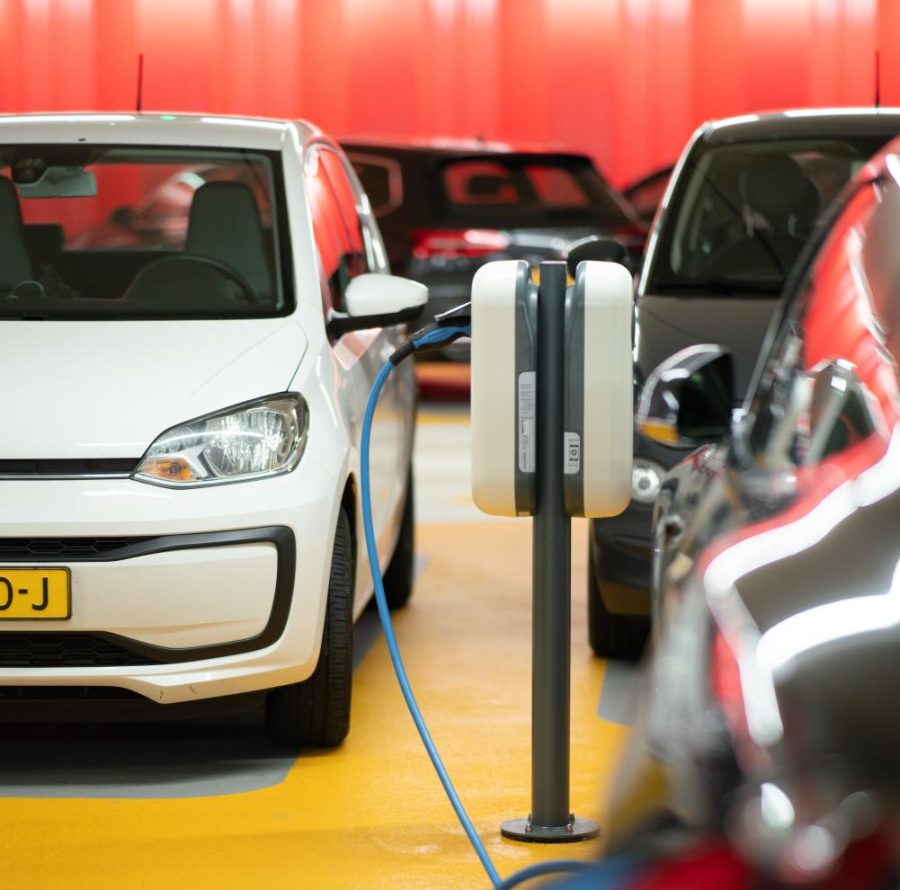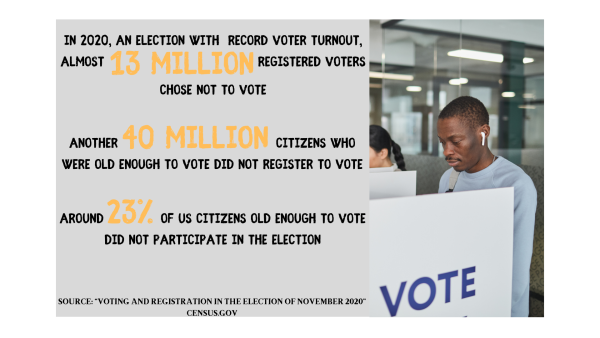The Solution to Rising Gas Prices
An EV is being charged at one of many public charging stations.
October 26, 2022
*The opinions expressed within the content are solely the author’s and do not reflect the opinions and beliefs of the website or its affiliates.*
Are you tired of the soaring gas prices? Electric vehicles (EVs) have recently dominated the automotive industry, providing an interesting alternative to the traditional gas-consuming model. At the beginning of 2022, there was a significant increase in the registration of electric cars, resulting in a historic 4.6% market share for EVs in the United States. The price of gas has been rising across the country, with the national average increasing annually by 44% according to Staten Island Live. Consequently, almost every significant sector of the economy is affected by these increasing gas prices, impacting everyday businesses and leading many of them to increase the prices of their goods. This has caused the customer demand for products to decrease, thus causing a cyclical effect on our dying economy. However, with more EVs, the environment and economy would have the opportunity to improve as these vehicles can contribute to increased fuel efficiency and decreased pollutants.
Evidently, EVs generally increase fuel efficiency. The current gas price increase leaves people contemplating how they should commute to various places while having to allocate proper funds for gas. Switching to electric alternatives provides the best long-term solution to this issue, as people are able to save large amounts of money since the use of electric chargers is cheaper than filling up gas at a gas station. Users can either install chargers in their homes to charge their vehicles or simply find chargers around the city that often come without any cost. Additionally, electricity proves to be a more efficient energy source, with each charge sustaining approximately 250 miles of driving. According to Fuel Economy, over 77% of the electrical energy from the grid is converted by EV’s into power for the wheels, compared to gas-consuming vehicles, which only use 12%-30% of the energy stored in gasoline. Finally, owning an electric car or even a hybrid also permits drivers to use carpool stickers that allow people to get to their destinations more efficiently, another added benefit to purchasing an EV. As such, fuel efficiency can be greatly improved with the use of electric cars.
Moreover, electric cars are beneficial to the environment as well. The traditional model of cars that rely on gas causes excessive carbon dioxide emissions. According to Fuel Economy, natural gas cars release about 1.4 billion tons of greenhouse gases per year. The buildup of carbon dioxide and other atmospheric gasses traps the sun’s energy and causes the Earth’s atmosphere to warm naturally, resulting in climate change seen around the globe. The steady increase in temperatures has caused rising sea levels and unpredictable weather. Evidently, climate change is one of the biggest threats that humans have ever faced. In order to take proper control of the situation, the automotive industry needs to make the necessary shift towards electric vehicles, but everyday people need to act now as well. Taking one simple step and transitioning to EVs is one of the biggest impacts a person can have in decreasing carbon dioxide emissions since electric models rely on clean energy alternatives. Lowering the use of gas burning cars is one of the many areas where everyday people can make the biggest change.
While many opposing EVs may claim that the price of manufacturing and purchasing an EV is too high, the long-term benefit outweighs the cost. Even though an EV may cost more, a potential buyer will save more money on gas in the future, as drivers are utilizing less expensive methods to power their vehicle.
When deciding on their first car, students at UHS should consider buying an EV. On the individual level, the majority of students do not have significant personal incomes so it’s crucial to consider the long-term cost of their vehicle of purchase, and on the collective level, students need to consider the carbon footprint a vehicle may leave behind. As the next generation, students can readily change the community they live in, so it’s important to acknowledge the potential effects on the environment when choosing a vehicle.














